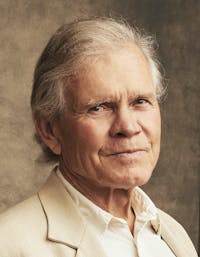Cheaper, Faster, Better by Tom Steyer, book review by Rick Ridgeway
Tom Steyer and I have one thing in common. It’s not that he is a billionaire impact investor. Nor that he has run for the US Presidency. Nor that he has donated a quarter of a billion dollars to Democratic campaigns and causes (more than any individual).
It’s that we both became climate activists by bearing witness--with our own eyes, within our own lifetimes--to the gradual disappearance of massive glaciers we had seen as young adults.
In Tom’s case, he had seen a glacier outside of Anchorage in his early 20s that made such an impression he returned a quarter of a century later to show his family. But it was gone, and what Tom took away from the experience was that when you witness geologic time in human time--when you understand planetary change at a visceral level--you are morally obligated to do something about it.
“As an investor,” Tom writes in his new book Cheaper, Faster, Better, “I’d spent my career looking for patterns, assessing risks, responding to disruption, and looking around corners.” When Tom saw the glacier had disappeared, he committed to using those skills to do what he could to advance solutions to the climate crisis, and that is the theme of his book: that we all must use whatever tools are in our box to do our part. In Tom’s words, “We all must become climate people.”
Since you’re reading this as someone interested in One Earth’s message and perhaps One Earth’s goals to implement solutions to the climate crisis using existing tools we humans have in our toolbox, you are likely already a “climate person.” Even then, this book will expand your perspectives as you follow Tom interacting with many of the other leading people and organizations who, like One Earth, are finding solutions to the climate crisis, as well as those who are causing it.
That’s especially true of the players within the fossil fuel industry, and on that topic Tom doesn’t pull punches, taking on what he calls the full ecosystem: “businesspeople, bankers, insurers, politicians, consultants, tax lawyers, media figures, think tanks.”
You’ll also get to meet many of the (mostly) younger changemakers Tom knows through his impact investing, entrepreneurs, activists, policymakers and others going inside the system to change the system, using the tools in their boxes to be as effective as they can be. “If you want to live a meaningful life in an era defined by climate change,” Tom writes, “then fighting climate change needs to be a meaningful part of your life.”
He also shows us how to avoid “climate guilt,” how to remain optimistic, and even how to have fun while doing it.
While Cheaper, Faster, Better is about our individual choices and actions, at its heart it's more about how our choices and actions can inspire others, and how, through collective action, we can change the system and save our one and only Earth.






